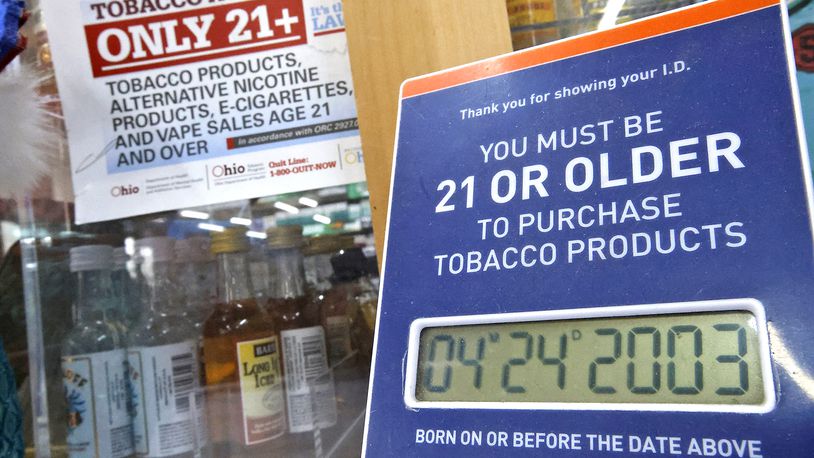Springfield is one of several Ohio cities that has issued local ordinances designed to reduce access and use of tobacco and vape products by minors. The city requires retail vendors of such products to apply for a sales license and abide by regulations that prohibit the sales of such products to those under the age of 21. The local legislation was designed to discourage early use of tobacco that can lead to addiction and potential long-term health problems.
Cook told commissioners that local efforts have demonstrated improved success in compliance by vendors with the local ordinance but “it is still very easy for underage kids to access” tobacco products.
He warned the state’s approval of House Bill 513 will make it even easier.
The state’s action preempts the local law, taking away local jurisdiction to enforce penalties for retailers found selling tobacco and nicotine products to people under 21, health department communications coordinator Nate Smith said.
Assistant Mayor Dave Estrop questioned state legislators’ motive for the law.
“That must be good for the state of Ohio because that’s what the General Assembly has put into law,” Estrop said. “… This is beginning to smell a little like House Bill 6.”
House Bill 6 is a reference to the $61 million bribery scheme involving First Energy executives and leading Ohio Republican legislators. The scandal has been called Ohio’s worst political scandal and has resulted in former legislators being sentenced to jail and suicides by some people involved in the case.
Ohio already has one of the worst health scores in the nation, Estrop said, ranking 47th out of the 50 states. According to the Health Policy Institute of Ohio, the state has consistently ranked among the bottom for expenditures on health care for residents.
The American Lung Association previously condemned the bill. It said as of 2022, 36.7% of Ohio youth used tobacco in some way.
“The American Lung Association staunchly condemns the Ohio State Legislature for passing HB 513. The bill is a scheme of Big Tobacco to stop communities from passing laws that can help prevent and reduce youth tobacco use,” the organization said in a statement. “If this bill becomes law, it will take away the rights of cities and counties to pass laws to regulate tobacco and e-cigarette flavors, their ingredients, or enact tobacco retail licensing to hold bad actors that sell illegally to kids accountable.”
The state measure is also challenging Ohio’s “home rule” provisions, which allows cities and villages to have a constitutional right to establish laws for their own municipalities for the good of their residents. Critics allege that the state legislature is increasingly stripping powers away from local governments.
That is the argument the city of Columbus and some neighboring municipalities are putting forward in legal action challenging the state measure. In response, a Franklin County Common Pleas Court has issued a temporary restraining order permitting parties in the legal action to continue the local bans on sale of flavored tobacco products and to enforce sales prohibitions to those under 21 years of age.
Stevenson told Springfield commissioners the legal department is looking into the possibility of the city joining in on that complaint and a recommendation will be forthcoming.
Mayor Rob Rue shared that at a recent meeting of the Ohio Mayors Alliance, which includes the mayors of Ohio’s 30 largest cities, the group was united in support of home rule and will be working together to maintain local control, including on such issues of public health and safety such as those represented by passage of House Bill 513.
About the Author
